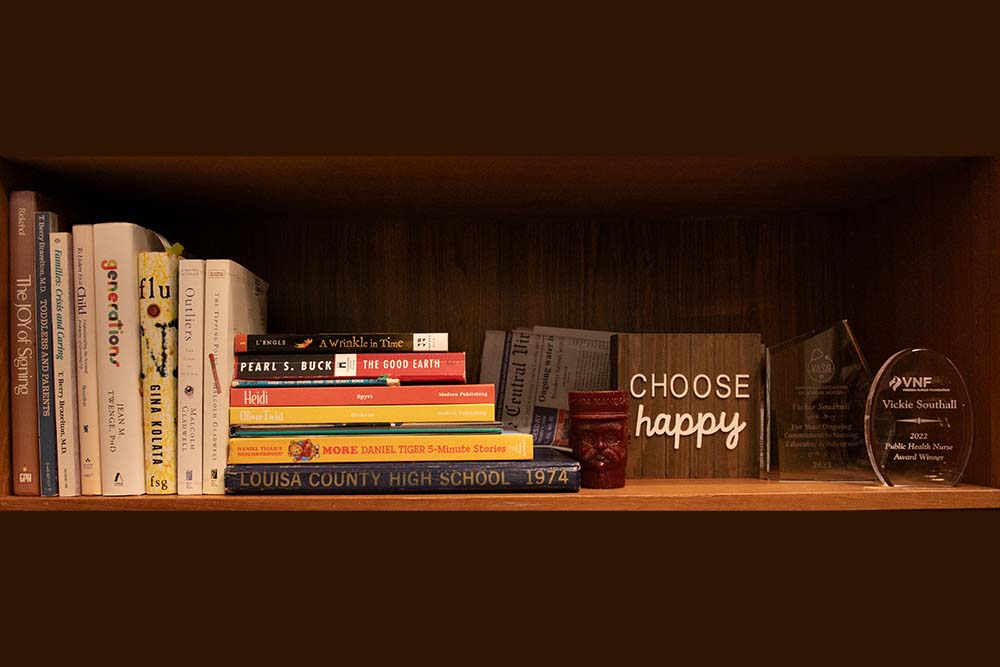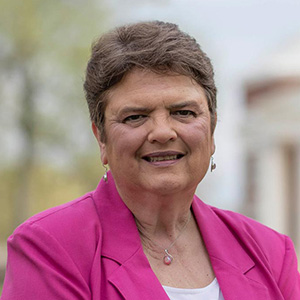
On My Bookshelf
READING IN CHILDHOOD
Growing up on a farm, I never had to worry about food or a place to live, but we didn’t have money for books. That’s why I remember my parents allowing me to buy my first book at the Scholastic Book Fair in second grade: Rabbit and Skunk and the Scary Rock. I still love that book because of their sacrifice.
I’m not sure how I learned to read. When we picked up books at first grade orientation, I promptly read them all. My parents were impressed because they hadn’t read to me, but to me, it wasn’t strange—I thought reading came naturally. I do know that I watched “Captain Kangaroo” religiously; he read books and did letters and sounds. It was the “Sesame Street” of my era. By fifth grade, I had read most of the books in my school’s small library. My favorites were Nancy Drew, Cherry Ames, Little Women, Heidi, A Wrinkle in Time, and Helen Keller’s Story of My Life. After I read Helen Keller, my best friend Cathy and I learned to fingerspell, and would secretly “talk” during class. It sparked my future interest in American Sign Language.
READINGS SHE ASSIGNS
In seventh grade, I had a social studies teacher, Kathy Bonnie, who really ignited what would become a lifelong interest in news and current events. It was 1967, a tumultuous time . . . I remember watching the returns come in during the Nixon versus Humphrey presidential election, staying up until 3 a.m. while my family slept. It’s probably when I became a news junkie. I’m not political, but I want to know what everybody’s thinking on both sides; that’s so important for nurses. I’ve always read newspapers and magazines and, today, watch everything from CNN to Fox News, and read everything from the New York Times to our local newspaper, The Central Virginian.
As part of my classes, I want my students to stay current in healthcare. One of my practicum assignments is to have students bring an item to class—maybe from ANA’s SmartBrief or MedPage Today—to discuss. I can’t stand it when nurses don’t know what’s going on with healthcare policy or haven’t kept up with healthcare advances. When nurses can’t talk about what’s going on in the world, they have no say in what policies are made.
I’m a pediatric nurse, and I love anything by T. Berry Brazelton. His INFANTS AND MOTHERS, and TODDLERS AND CHILDREN, really teaches the importance of listening to your child, of viewing each child as unique. He’s a child whisperer, truly; I’ve always found myself agreeing with him.
prof. Southall
FAVORITE BOOKS FOR AND ABOUT KIDS
I started at UVA in 1985, close to when my sons Adam and Brian were born. Our favorite books back then were Love You Forever, the Velveteen Rabbit, and books about the Berenstain Bears. Now, my granddaughter Anna’s favorites are about Daniel Tiger, from “Mister Rogers Neighborhood,” and our new favorite book is I am Smart, I am Blessed, I Can Do Anything.
I’m a pediatric nurse, and I love anything by T. Berry Brazelton. His Infants and Mothers, and Toddlers and Children, really teach the importance of listening to your child, of viewing each child as unique. He’s a child whisperer, truly; I’ve always found myself agreeing with him.
BEST PLACE TO READ
When I got a treadmill 20 years ago, it came with a book holder. Until then, I hadn’t found time to read anything other than newspapers, magazines, and journals, until I combined reading books with walking each day. It was a great motivator, and when Kindles came out, it got much easier to read! I read some classics that I’d missed while growing up, like Pearl Buck’s The Good Earth, and more recent books, like Malcolm Gladwell’s Outliers: The Story of Success.
I gravitate to books about people who overcome obstacles, like Jeannette Walls’s Glass Castle, or any of Catherine Ryan Hyde’s books. I’m reading Jean Twenge’s Generations right now—which is fascinating and uses generational data to dispel many popular myths and describe how the era you are born in shapes your behaviors, attitudes, and values.


